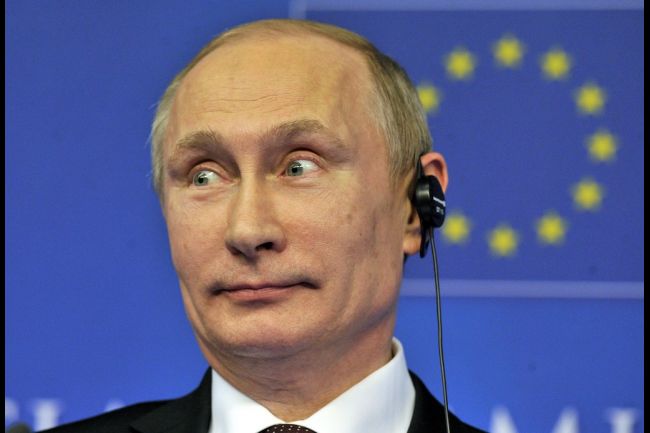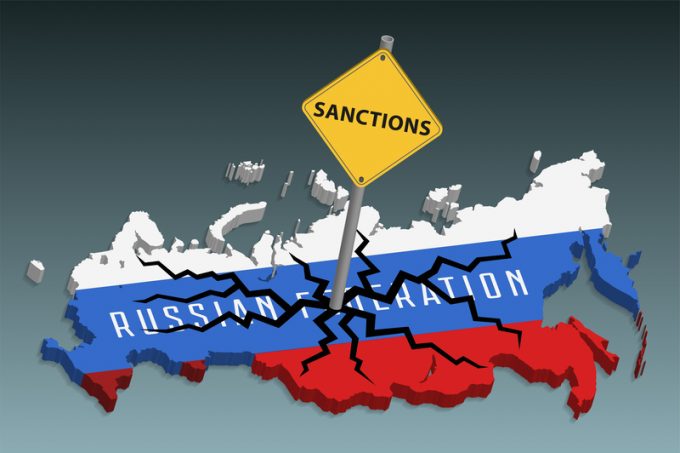The debate that was held in the European Parliament prior to ratification of the EU-Ukraine association agreement proves how strong the pro-Russian lobby in the European Union is and how easy it is to manage the information message. The latter is composed of four elements: elements of facts, emotions, ideology and the human factor. A speech by Nigel Farage, a British politician, delivered at the mentioned EP session of 16 September is its perfect example and the argument that “In the war against Islamic extremism, Vladimir Putin, whatever we may think of him as a human being, is actually on our [i.e. Western] side” – is being popularized in various circles across Europe.
The following utterances are embedded in a specific context – in the West, the awareness of the situation in Ukraine is not high and the memory of its societies is short. This is exploited by politicians, who officially say different things about themselves, but certainly not that they are pro-Russian.
According to Farage:
- “Amongst the long list of foreign policy failures … including, of course, the bombing of Libya, the desire to arm the rebels in Syria, has been the unnecessary provocation of Vladimir Putin”;
- “This EU empire, ever seeking to expand, stated its territorial claim on the Ukraine some years ago. Just to make that worse, of course, some NATO members said they too would like the Ukraine to join NATO. We directly encouraged the uprising in the Ukraine that led to the toppling of the president, Yanukovych, and that led of course in turn to Vladimir Putin reacting. And the moral of the story is if you poke the Russian bear with a stick, don’t be surprised when he reacts”;
- “We are rushing through an Association Agreement at undue speed with the Ukraine and as we speak there are NATO soldiers engaged in military exercises in the Ukraine. Have we taken leave of our senses? Do we actually want to have a war with Putin? Because if we do, we are certainly going about it the right way”;
- “In the war against Islamic extremism, Vladimir Putin, whatever we may think of him as a human being, is actually on our side. I suggest we grow up. I suggest rrecognize the real threat facing all of our countries, communities and societies. We stop playing war games in the Ukraine and we start to prepare a plan to help countries like Syria, like Iraq, like Kenya, like indeed Nigeria, to try and help them to deal with the real threat that faces us. Let’s not go on provoking Putin whether we like him or not”;
- “We saw Western Ukrainians, waving European flags, rioting, setting fire to things, and effectively staging a coup d’état, which brought down the Ukrainian president, which has led to this instability. Yes, yes, you [members of European Parliament] are the guilty people and you refuse to accept it”.
Evidently, despite a certain awakening in the West, which has arisen from a “cold shower” in the form of the escalation of the conflict in Ukraine, Putin still has numerous possibilities and instruments that he has not fully used yet. It needs to be remembered that many European Union member states, like the United States of America, are seriously indebted. This always leaves space for populists. In the present conditions – also in Moscow, which might use the populism to pursue its own goals by enhancing its certain ideological aspects, thus antagonizing societies in individual countries even more and blurring the information message with understatements, ideologization or “business pacifism” in the name of “stabilization.
Western politicians, who are oriented primarily on promising new social privileges all the time in order to improve their pre-election polls, have found it difficult to pursue foreign policy effectively for years now. It is particularly the case in the context of unintended increase in expenditure (not only on broadly defined defence) or the risk of business repercussions on the part of Russia, which are experienced by societies even without the pro-Russian information and emotional manipulations. Not to mention the bureaucratic machine that has been expanded in the EU for years – it wasn’t the first time it failed, which only strengthens Berlin’s position with each and every crisis.
Threatening with war and economic sanctions is a powerful tool in Kremlin’s hands due to internal problems of individual states, including the “spirit” of Western societies and their elites, which have been made believe that they are powerful, safe and that relishing consumption is good because of “the end of history”, as Francis Fukuyama wrote. This concerns also the largest ones, such as France, Great Britain or the USA, which is not inconsequential for NATO and EU activities. They are accompanied by weaker countries, such as Hungary, the Czech Republic or Slovakia, which have been systematically made dependent by Russia over the recent years without any effective counteraction on the part of Brussels.
Contrary to the West, the decision-making mechanism in the Russian Federation is multiple times quicker and Putin’s perspective is not limited to one or two tenures. He is already taking measures to find and support people who are favorably inclined towards him and who might win the next election. These are politicians who are opposed to sanctions against Russia, the USA, enlargement of the EU and NATO, or increasing defence expenditure.
Mikhail Shishkin, writes the following words in his article for The Guardian titled “Russia, Ukraine and Europe have been into Vladimir Putin’s black hole of fear”: “Putin offered Europe his social contract [a new division of the sphere of influence]. And with every new person willing to accept it, the black hole [of fear] will grow and expand. One needs to realise: postwar Europe is already prewar Europe.” The problem is that the Western “selfishness” is even greater than the fear. Not only Ukraine will need to work at grass roots and not only Kyiv has a lot of work to do. We will either overcome the crisis stronger and together or Ukraine’s failure will at the same time become the beginning of the end of the Western domination.








